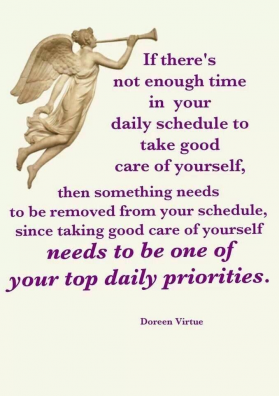Caregiver Burnout Quiz: How Do You Rate?
Are you feeling overwhelmed and stressed out as a caregiver? Take this quiz to find out if you're experiencing caregiver burnout. It's important to focus on self care and know your limitations to prevent caregiver stress and burnout.

Welcome to our caregiver burnout quiz! Take this quiz regularly to assess your level of caregiver burnout and stress.

Understanding Caregiver Burnout:
Providing care for a loved one is a deeply rewarding experience, but it can also bring significant challenges. Over time, the stress, anxiety, and exhaustion associated with caregiving can lead to what we call caregiver burnout.
Caregiver burnout is a state of physical, emotional, and mental exhaustion that results from the demands and difficulties faced by family caregivers.
Recognizing the Signs of Caregiver Burnout:
Signs of caregiver stress and burnout can be subtle and easily overlooked. It's crucial to be aware of these signs, which may include feeling overwhelmed, experiencing sleep disturbances, or developing a sense of detachment or apathy toward caregiving responsibilities.
The Top Three Signs of Caregiver Stress Are:
- Physical exhaustion: Feeling constantly tired and struggling to complete tasks.
- Mental exhaustion: Difficulty concentrating, poor focus, lack of enthusiasm, and potential depression.
- Emotional exhaustion: Experiencing low moods, apathy toward caregiving tasks, feeling overwhelmed, or experiencing isolation.
The Importance of Self-Care:
As a family caregiver, it's vital to prioritize self-care, even though it may be challenging. Reducing stress levels can include getting enough rest, setting realistic goals, and finding time for self-indulgence (even if it seems difficult). Reach out to friends and family for support in providing care and make your own health a priority by incorporating regular exercise into your routine.

Recognize Your Value:
Family caregivers play a crucial role in the caregiving equation. Without you, the entire system can falter. Remember that caregiver burnout is the leading cause of admissions to alternative care settings such as assisted living and nursing homes.
Setting Boundaries and Seeking Help:
While caregivers are inherently selfless, it's essential to understand your own needs and limitations. Neglecting yourself can lead to physical and emotional strain. Remember that you have rights as a caregiver, and there is life after caregiving.

Are you getting enough sleep? Feel guilty? Have reduced feelings?
Monitoring Stress Levels:
Regularly monitoring your stress and burnout levels can help you maintain awareness of your health and well-being. This awareness allows you to take necessary steps to reduce or prevent burnout.
The Caregiver Burnout Quiz:
Now, let's determine your caregiver burnout index with 12 questions. Assign points as follows: A = 4 points, B = 3 points, C = 2 points, D = 1 point. Then, tally your score to understand where you stand.
- How often do you get a good night's sleep (7 or more hours)? a. Every day. b. Often. c. Sometimes. d. Seldom or never.
- How often do you engage in recreational activities or hobbies you enjoyed before caregiving? a. Every day. b. Often. c. Sometimes. d. Seldom or never.
- How often do you feel irritable or easily frustrated with others? a. Seldom or never. b. Sometimes. c. Often. d. Every day.
- How often do you feel happy or grateful? a. Every day. b. Often. c. Sometimes. d. Seldom or never.
- How often do you struggle to focus? a. Seldom or never. b. Sometimes. c. Often. d. Every day.
- How frequently do you rely on cigarettes or consume more than 2 cups of coffee or soda to get through the day? a. Seldom or never. b. Sometimes. c. Often. d. Every day.
- How often do you feel exhausted, not wanting to cook, clean, or handle daily tasks? a. Seldom or never. b. Sometimes. c. Often. d. Every day.
- How often do you feel hopeless and helpless about the future? a. Seldom or never. b. Sometimes. c. Often. d. Every day.
- How challenging is it for you to relax without using alcohol or prescription tranquilizers? a. Every day. b. Often. c. Sometimes. d. Seldom or never.
- How often do you feel overwhelmed by everything you need to do? a. Seldom or never. b. Sometimes. c. Often. d. Every day.
- How frequently have you been criticized about your caregiving or told by others that you're stressed out? a. Seldom or never. b. Sometimes. c. Often. d. Every day.
- How often do you wish someone would take care of you and meet your needs? a. Every day. b. Often. c. Sometimes. d. Seldom or never.
Evaluating Your Results:
Now, calculate your score. Each A = 4 points, B = 3 points, C = 2 points, D = 1 point.
- 48-42: Excellent! You're managing your stress effectively. Keep up your healthy habits and prioritize self-care.
- 30-41: Low Stress Threat. You're handling stress quite well, but don't let your own needs fall to the wayside.
- 18-29: First Alarm Stress Alert. You need to focus on stress management and self-care immediately to prevent further health issues.
- 12-17: Five Alarm Stress Alert. You're already overwhelmed, and your health is at risk. Seek help and prioritize self-care now.
Remember, this self-test is not a medical diagnosis but a tool to help you gauge your stress levels. Take action to protect yourself from the negative effects of chronic stress, and remember that there is life beyond caregiving. Your well-being matters.
Caregiver Relief: A Stress Management Guide has been crafted with you, the family caregiver, in mind. Its purpose is to raise awareness of the stress you may experience and provide you with effective techniques to prevent burnout. Stress management often requires seeking external assistance. Explore The Family Guide to in Home Health Care for additional resources.
To monitor your stress levels, consider taking these stress assessment tests:
Understanding Caregiver Burnout
Caregiver burnout is a state of physical, emotional, and mental exhaustion that can occur when caregivers don’t get the help they need or try to do more than they are able. It’s a common issue affecting many caregivers, including family members and those in assisted living environments or nursing homes. Over time, the prolonged stress and demands of caregiving can lead to a change in attitude from positive and caring to negative and unconcerned. This shift not only impacts the caregiver’s own well-being but also the quality of care they provide. Recognizing and addressing caregiver burnout is crucial to ensure both the caregiver and their loved ones receive the best possible care.
Signs and Symptoms of Burnout
Recognizing the signs and symptoms of caregiver burnout is crucial for maintaining health and well-being. Common signs of burnout include:
- Feeling overwhelmed and isolated: You may feel like you’re carrying the weight of the world on your shoulders, with no one to share the burden.
- Lack of energy and motivation: Tasks that once seemed manageable now feel insurmountable, and you may struggle to find the energy to complete daily caregiving duties.
- Increased irritability and anger: Small annoyances can trigger significant frustration, leading to strained relationships with family members and loved ones.
- Physical symptoms such as headaches and fatigue: Chronic stress can manifest in physical symptoms, making it harder to perform caregiving tasks effectively.
- Feeling hopeless and helpless: A sense of despair about the future can set in, making it difficult to see a way out of the current situation.
If left unchecked, caregiver burnout can lead to chronic conditions and even premature death. It’s essential to take proactive steps to manage stress and prevent burnout.
The Caregiver Burnout Quiz
The Caregiver Burnout Quiz is a valuable tool for caregivers to identify potential burnout and take steps to prevent it. The quiz assesses the risk of caregiver burnout by asking questions about emotional and physical symptoms, social and financial stress, self-care, and support systems. By taking the quiz, caregivers can gauge their risk for burnout and identify areas where they may need additional support. This self-assessment can be a crucial first step in recognizing the need for change and seeking the necessary resources to manage stress and maintain their own well-being.
Managing Caregiver Stress
Managing caregiver stress is essential for preventing burnout. Here are some strategies to help you balance caregiving duties and maintain your own well-being:
- Prioritizing self-care: Take care of your physical, emotional, and mental well-being. This includes getting enough sleep, eating a balanced diet, and engaging in regular exercise.
- Seeking support: Reach out to family, friends, and professional caregivers for help. Don’t hesitate to join a caregiver support group where you can share experiences and gain insights from others in similar situations.
- Taking breaks: Practice self-compassion and take time off from caregiving duties. Respite care services can provide temporary relief, allowing you to recharge and return to your responsibilities with renewed energy.
- Setting realistic goals: Prioritize tasks and focus on what can be accomplished. Setting achievable goals can help reduce feelings of overwhelm and provide a sense of accomplishment.
By managing stress and taking proactive steps to prevent burnout, caregivers can maintain their own well-being and provide the best possible care for their loved ones.
Building a Support Network
Building a support network is crucial for caregivers to manage stress and prevent burnout. A support network can include:
- Family members: Involve them in caregiving duties and seek their emotional support. Sharing responsibilities can lighten the load and provide much-needed relief.
- Caregiver support groups: Join a group of caregivers who understand the challenges of caregiving. These groups offer a safe space to share experiences, gain advice, and find emotional support.
- Professional caregivers: Hiring respite care services can provide temporary relief, allowing you to take breaks and focus on your own well-being.
- Online resources: Access online communities and forums for caregivers. These platforms offer a wealth of relevant information, tips, and support from others who understand what you’re going through.
By building a support network, caregivers can feel less isolated and more supported, ultimately reducing their risk of burnout.
Caregiver Relief: A Stress Management Guide has been crafted with you, the family caregiver, in mind. Its purpose is to raise awareness of the stress you may experience and provide you with effective techniques to prevent burnout. Stress management often requires seeking external assistance. Explore The Family Guide to in Home Health Care for additional resources.
To monitor your stress levels, consider taking these stress assessment tests:





